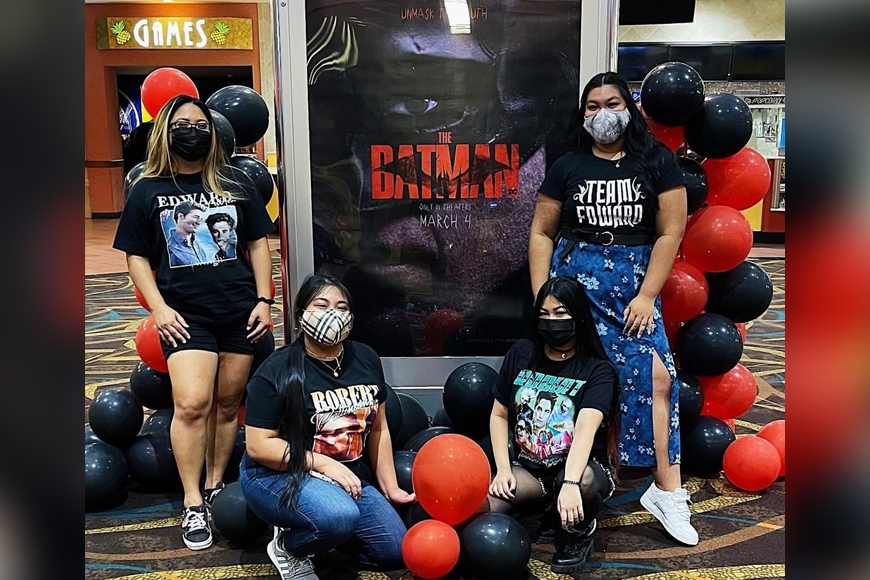Youth Culture, Colonial Legacies, Abolition & Decolonial Justice in Kalihi, Hawaiʻi
Demiliza Saramosing is a PhD candidate in the Department of American Studies and a recipient of the 2023 Fink Summer Research Fellowship. She spent the past summer in Kalihi, Hawaiʻi, conducting ethnographic fieldwork for a project called, “Messin' Wid Paradise: Kalihi Youth and Oceanic Homeplace-Making In and Beyond the City with No Pity.” This ethnographic project is intended to inform decolonial and abolitionist movements through illustrating and analyzing the experiences of young adults in Kalihi, and how their lives are impacted by a myriad of historical and contemporary social, economic, and political circumstances.
Tell us about your project
In the past 30 years, immigrant, second-generation, and Kānaka Maoli youth have grown up in the urban inner-city of Kalihi, Honolulu while navigating the everyday structures of racism, classism, inter-residential conflict, and gender and sexual violence in the occupying settler state of Hawaiʻi. This is an auto/ethnographic project based on participant observation and in/formal talk story methods that examines the experiences of a cohort of young adults from Kalihi and some who have moved away to other places in Hawaiʻi or to the continent.
For this project, I want to understand the identity-formation processes of this group of people who came of age during key historical periods in the ‘90s/2000s to the present that are tied to histories of:
- The heteropatriarchal 1893 military-backed overthrow of the Hawaiian Kingdom under the sovereign rule of Queen Liliʻuokalani by white American sugar plantation businessmen; the annexation of the islands as a US territorial possession in 1898; and the declaration of Hawaiʻi statehood in 1959.
- US imperial wars and colonialism throughout Asia and the Pacific that displaced and fostered the mass migrations of Filipinos, non-Hawaiian Pacific Islanders, and other recent migrants/refugees such as Vietnamese communities to work in Hawaiʻi’s plantation turned military-tourism economic system.
I want to also understand how these individuals understand their relational lives, cultural identities, and positionalities amidst colonial legacies and present-day issues of poverty, gendered racial policing, and assimilation having been brought up in Kalihi.
In this study of generational youth culture in Kalihi, I pay critical attention to mass popular culture shaped by social, economic, and political circumstances and how it in turn informs the identity and cultural formation processes of my co-participants. Thus, this analysis focuses on the question: How does this cohort of young adults from Kalihi express themselves, understand their evolving identities and positions, and navigate their senses of (un)belonging amid marginalization in a globalized and transnational world?
While the foundation of the work is the analysis of ethnographic semi-structured interviews and my interactions with my participants, I will also discuss my own experiences as I come from this same cohort. While my work is in progress at this time, I expect to argue that understanding my co-participants’ experiences will illuminate social injustices in “multicultural paradise” and reorient our attention to the historical, temporal, and spatial forces that shape the choices, frustrations, ambitions, disappointments, desires, and dreams of young adults from Kalihi in and beyond occupied Hawaiʻi.
I also expect to argue that this analysis will inform our decolonial and abolitionist movements for Ea (life, land, sovereignty) and relational Oceanic justice in Hawaiʻi. Ea is a Hawaiian concept akin to “sovereignty” that does not depend on US state recognition. Instead, ea reflects the embodied practices of Indigenous resurgence happening beyond the state, which Noelani Goodyear Kaʻōpua explains is “based on the experiences of people on the land, relationships forged through the process of remembering and caring for wahi pana (storied places).” How can learning from the lives and experiences of people who came of age in Kalihi inform how we mobilize our cultural politics for justice? Messin’ Wid Paradise illustrates my analysis of what young adults from Kalihi offer to debates in Critical Youth Studies, Indigenous and Women of Color Feminisms, Queer of Color Critique, Critical Race and Ethnic Studies, and (Asian) Settler Colonialism Studies.
What's exciting about your project? What has this award allowed you to do?
Being awarded the 2023 Beverly and Richard Fink Summer Research Fellowship has allowed me to present new framings for my project at the annual UC Davis Bulosan Center for Filipinx Studies and Research Conference. This award has allowed me to complete my formal interviews with 25 co-participants. It has also allowed me to continue engaging in everyday “deep hangouts”/participant-observation in my community while providing me with the monetary relief necessary for me to carry out the work. I am excited to start my close readings of the transcripts that reveal different experiences of cultural life in Kalihi shaped by underlying histories and issues relating to imperialism, migration, displacement, citizenship, occupation, settler colonialism, and the US Empire.
What challenges have you faced? Have there been any notable surprises?
When I first went back home to do fieldwork in 2021, I was set to do my dissertation on Kalihi but within the boundaries of a specific institution/study site. The pandemic and my study site's plan for restructuring changed the direction of my project. As a researcher, I learned that there isn't a "perfect fieldwork experience" and that it is important to plan for changes and shifts that will inevitably happen with my project.
The Beverly and Richard Fink Summer Fellowship provided me with the time, encouragement, and monetary means to pivot and pursue new directions for my fieldwork.
How do you hope your project will make a difference in the world?
That's a huge question! I don't think this project alone is making a difference in the world. I believe it functions as one part of these coalitions we are forging that will lead us towards a plethora of possibilities. As a Filipina scholar who was born and raised in Kalihi, I only dream that folks can appreciate and empathize with the insights people from Kalihi bring as well as learn from them to better re-energize our movements for abolition and decolonial justice in Hawai'i and beyond. I hope that scholars, artists, and activists can learn from my project's call to action to learn from one another more deeply and engage in shared cultural politics, empowerment, and resistance that rejects the assimilative logic of incorporation into the settler "multicultural paradise" that is bolstered by heteropatriarchy.
How has the award made a difference to your career? What partnerships has it helped you develop and nurture?
This award has allowed me to expand my knowledge and skillset as an ethnographer and has allowed me to connect with community members who were eager to share their experiences of having grown up in Kalihi.
Support outstanding fellows like Demiliza Saramosing by making a gift to the Beverly and Richard Fink Graduate Fellowship Fund today.
This story was edited by Max Pritchard, an undergraduate student in CLA.


